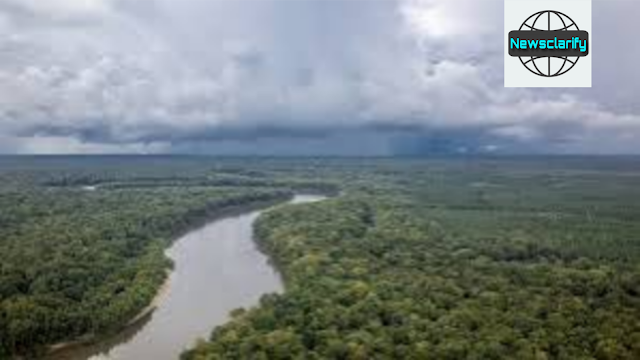Florida's Fight Against Oil Drilling Victory: Apalachicola Bay Protected by New Law
The catastrophic Deepwater Horizon oil spill—infamously known as the BP oil spill—may not have physically reached Apalachicola Bay back in 2010, but the threat alone wreaked havoc across this pristine stretch of Florida’s northern Gulf Coast. The fear of crude oil tarnishing the region’s natural beauty was enough to cripple local economies, halt tourism, and shut down fisheries.
Florida State Representative Jason Shoaf still remembers the economic devastation vividly.
“It struck our commercial fishing, aquaculture, and tourism industries hard,” he said. “Just the possibility of oil drove tourists away for months. Businesses collapsed, jobs vanished, and the region changed forever.”
Those painful memories came roaring back in April 2024, when the Florida Department of Environmental Protection (DEP) greenlit a permit for exploratory oil drilling in the Apalachicola River Basin, issued to Clearwater Land and Minerals, a company based in Louisiana.
That decision ignited fierce backlash. Local residents, environmental groups, and business leaders quickly united to form the Kill the Drill coalition, launching a passionate campaign to block the project.
And they won.
One year later, thanks to relentless pressure and an administrative legal challenge by the Apalachicola Riverkeeper, Judge Lawrence P. Stevenson recommended the permit be denied. In May, the DEP officially reversed course, denying the controversial drilling proposal.
But for advocates of environmental protection, the fight was far from over.
Shoaf, along with fellow lawmaker Representative Allison Tant, pushed for a permanent ban on oil exploration in the region. Together, they crafted House Bill 1143, aiming to shield Florida’s inland waters from future fossil fuel threats.
“Just because this one permit was denied doesn’t mean we’re safe,” Shoaf declared. “HB 1143 ensures lasting protection for our natural resources, banning all oil exploration, drilling, and production within 10 miles of a national estuarine research reserve in rural opportunity counties. It also mandates the DEP to have solid plans to safeguard natural habitats in case of an emergency.”
The bill passed through the Florida Legislature with overwhelming support—only one dissenting vote in the Senate. On June 18, it landed on Governor Ron DeSantis’ desk. And despite criticism of his environmental record, DeSantis signed the bill into law, delivering a huge win to the communities who had fought so hard.
The area now protected is a natural treasure trove, both ecologically and economically. The Apalachicola River, born from the joining of the Chattahoochee and Flint Rivers, flows for 160 miles into Apalachicola Bay and the Gulf of Mexico. These waters fuel the region’s seafood industry and draw in eco-tourists from across the country.
For the many who still carry the emotional scars of the BP spill, this legislative victory feels like long-overdue justice.
“Oil from the spill never touched our shores—but the fear alone was enough to shut down businesses,” said Representative Tant. “We’ve lived through it. It’s not theoretical—it’s personal. So thinking about drilling here again? It’s pure madness.”
Adrianne Johnson, executive director of the Florida Shellfish Aquaculture Association, joined the Kill the Drill campaign not just professionally, but from the heart. A native of Apalachicola, she watched the oyster industry collapse following the 2010 crisis.
“This region carries a deep collective memory of that disaster,” she explained. “And it wasn’t even the spill—just the threat. Now imagine an actual spill upriver—it would be a catastrophe felt for generations. Our oyster farms, many in Franklin, Wakulla, and Gulf counties, would be decimated.”
Johnson also emphasized the climate vulnerability of the region.
“We’re still picking up the pieces from the 2024 hurricanes,” she said. “You can’t control nature. But you can control where you allow oil drilling. Doing it here is reckless and unnecessary.”
Tant backed that up strongly:
“This is a hurricane-prone state. It’s not if we get hit—it’s when. A spill during a hurricane would turn an already devastating storm into an environmental apocalypse.”
And the threat is real. According to the National Oceanic and Atmospheric Administration (NOAA), the Deepwater Horizon disaster killed over 8.3 billion oysters, 105,400 sea birds, 7,600 adult sea turtles, 160,000 juveniles, and led to a 51% drop in dolphins in Louisiana’s Barataria Bay.
Craig Diamond, a former president of the Apalachicola Riverkeeper, pointed out the fragility of the river system as a key reason to enforce the ban.
“This ecosystem is already under stress,” said Diamond, a water management expert and university professor. “The risks of fossil fuel development in these sensitive areas far outweigh any temporary gains.”
Shoaf says his inspiration for HB 1143 came from the grassroots passion of the people determined to defend Apalachicola Bay.
“This law is about preserving what matters most,” he said. “Our ecosystems, our economies, and our way of life.”
With the bill now officially signed, oil drilling along the Apalachicola River is no longer a looming threat—but a defeated one.
Description:
"Florida has officially banned oil drilling near the Apalachicola River and Bay after a massive community-led movement defeated a proposed permit. Learn how House Bill 1143 protects Florida’s Gulf Coast, seafood industry, and ecosystems from future oil threats."


